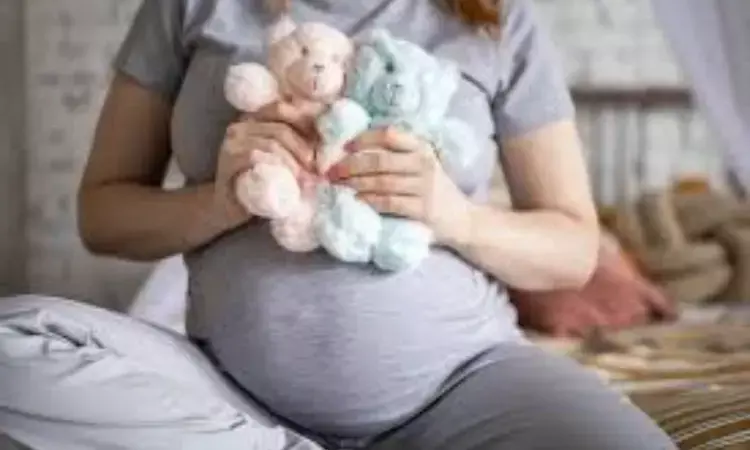- Home
- Medical news & Guidelines
- Anesthesiology
- Cardiology and CTVS
- Critical Care
- Dentistry
- Dermatology
- Diabetes and Endocrinology
- ENT
- Gastroenterology
- Medicine
- Nephrology
- Neurology
- Obstretics-Gynaecology
- Oncology
- Ophthalmology
- Orthopaedics
- Pediatrics-Neonatology
- Psychiatry
- Pulmonology
- Radiology
- Surgery
- Urology
- Laboratory Medicine
- Diet
- Nursing
- Paramedical
- Physiotherapy
- Health news
- Fact Check
- Bone Health Fact Check
- Brain Health Fact Check
- Cancer Related Fact Check
- Child Care Fact Check
- Dental and oral health fact check
- Diabetes and metabolic health fact check
- Diet and Nutrition Fact Check
- Eye and ENT Care Fact Check
- Fitness fact check
- Gut health fact check
- Heart health fact check
- Kidney health fact check
- Medical education fact check
- Men's health fact check
- Respiratory fact check
- Skin and hair care fact check
- Vaccine and Immunization fact check
- Women's health fact check
- AYUSH
- State News
- Andaman and Nicobar Islands
- Andhra Pradesh
- Arunachal Pradesh
- Assam
- Bihar
- Chandigarh
- Chattisgarh
- Dadra and Nagar Haveli
- Daman and Diu
- Delhi
- Goa
- Gujarat
- Haryana
- Himachal Pradesh
- Jammu & Kashmir
- Jharkhand
- Karnataka
- Kerala
- Ladakh
- Lakshadweep
- Madhya Pradesh
- Maharashtra
- Manipur
- Meghalaya
- Mizoram
- Nagaland
- Odisha
- Puducherry
- Punjab
- Rajasthan
- Sikkim
- Tamil Nadu
- Telangana
- Tripura
- Uttar Pradesh
- Uttrakhand
- West Bengal
- Medical Education
- Industry
Twin Pregnancies Double Heart Failure Risk in Women With Heart Disease, BMJ Study Finds

UK: Women living with heart disease who become pregnant with twins face a significantly higher risk of developing heart failure compared to those carrying a single baby, a new study published in the BMJ journal Heart has shown.
The study, led by Dr. Gurleen Wander and colleagues from the Department of Metabolism, Digestion and Reproduction, Imperial College London, utilized data from the European Society of Cardiology’s Registry of Pregnancy and Cardiac Disease (EORP ROPAC) to investigate outcomes in this high-risk group.
The analysis revealed the following findings:
- The study analyzed 96 twin pregnancies and 5643 singleton pregnancies in women with pre-existing heart disease.
- Over a follow-up period from 2007 to 2018, 25% of women with twin pregnancies developed heart failure compared with 11.2% of those with singleton pregnancies, indicating more than twice the risk.
- There were no significant differences between the two groups in rates of maternal death, arrhythmia, endocarditis, thrombosis, dissection, acute coronary syndrome, or hospital admission for cardiac reasons.
- Women with twin pregnancies were slightly older on average (32.1 years) than those with singleton pregnancies (29.5 years).
- Twin mothers had undergone fewer prior cardiac interventions compared with singleton mothers.
- Both groups showed similar cardiac diagnoses, functional classifications, and prevalence of comorbidities such as hypertension, diabetes, and signs of heart failure before pregnancy.
Multivariable analyses confirmed twin pregnancy as an independent predictor of heart failure among women with cardiac disease. Within the twin group, those with cardiomyopathy or a prior episode of heart failure were at greatest risk. The pattern of heart failure also varied by cardiac diagnosis — women with congenital or valvular heart disease typically developed symptoms during pregnancy, while those with cardiomyopathy were more likely to experience heart failure in the peripartum period.
The study also noted that obstetric outcomes, including preterm delivery and complications, were worse in women with twin gestations.
In an accompanying editorial titled “Twin gestation unmasks heart failure risk in women with cardiac disease”, Dr. Claudia Montanaro and colleagues from the Bambino Gesù Pediatric Hospital, Rome, emphasized that twin pregnancies impose an extraordinary strain on the cardiovascular system — often pushing the maternal heart to its physiological limits. Pregnancy itself increases circulating blood volume and cardiac output by up to 50%, and this load is even greater in twin gestations, heightening the likelihood of decompensation in women with compromised cardiac reserve.
The editorial further highlighted that the rise in twin pregnancies—driven by delayed motherhood and the widespread use of assisted reproductive technologies (ARTs) such as in vitro fertilization—has made these findings especially relevant in modern obstetric cardiology.
According to Dr. Montanaro, the ROPAC data “emphasize the importance of pre-pregnancy counselling and individualized risk assessment for women with structural or acquired heart disease.” She added that such information is essential for clinicians managing these pregnancies, where balancing maternal safety with fetal outcomes remains a critical challenge.
The researchers concluded that women with heart disease considering or expecting twin pregnancies require enhanced surveillance, multidisciplinary care, and careful delivery planning. The findings, they noted, “should prompt clinicians to recognize twin gestation as a major risk modifier in maternal heart disease.”
Reference:
Wander G, van der Zande JA, Canpolat U, et alTwin pregnancies in women with heart disease are complicated by high risk of heart failure: data from the EORP ROPAC RegistryHeart Published Online First: 23 October 2025. doi: 10.1136/heartjnl-2025-326281
Dr Kamal Kant Kohli-MBBS, DTCD- a chest specialist with more than 30 years of practice and a flair for writing clinical articles, Dr Kamal Kant Kohli joined Medical Dialogues as a Chief Editor of Medical News. Besides writing articles, as an editor, he proofreads and verifies all the medical content published on Medical Dialogues including those coming from journals, studies,medical conferences,guidelines etc. Email: drkohli@medicaldialogues.in. Contact no. 011-43720751
Next Story


